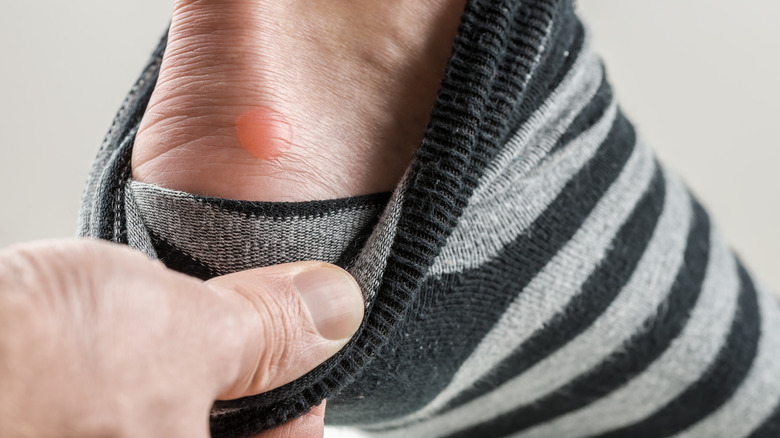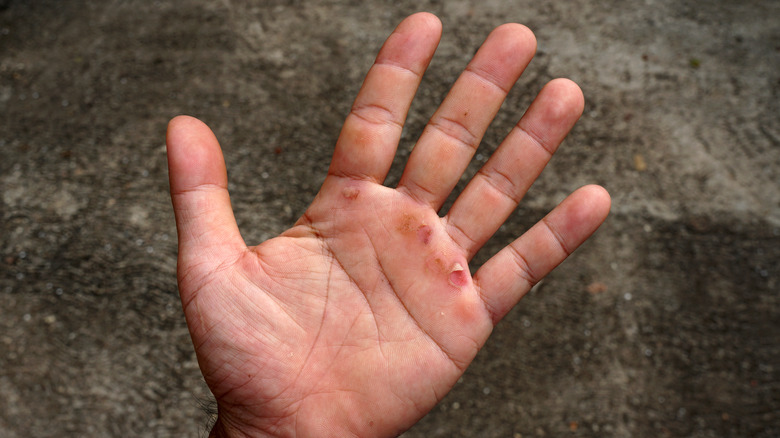What Causes Blood Blisters?
A blood blister is a type of blister that resembles a bubble on the skin. According to the Cleveland Clinic, a blood blister is filled with blood instead of a clear liquid like friction blisters. Blood blisters can appear nearly anywhere on the body, but most commonly occur on fingers and hands or feet and toes. When a blood blister forms, the blister forms on the outermost part of the skin, or epidermis. It's also normal for blood blisters to appear near joints or bonier areas of the body, such as your heel. However, blood blisters that occur near or in the mouth should be taken seriously, as they could be a sign of an underlying condition.
Blood blisters are hard to miss because instead of clear liquid, they are filled with blood. These types of blisters can range in colors, forming as bright red and then turning darker over time, MedicalNewsToday reports. In addition to these small, fluid-filled sacs, blood blister symptoms may also include irritation or pain near the injury, depending on what caused the blood blister.
Causes of blood blisters
Blood blisters can occur for a variety of reasons, but the cause of a blood blister itself is when too much pressure is applied to the skin. When the skin is pinched or traumatized by pressure, blood vessels underneath the skin break and mix with clear fluid, creating a blood blister, according to Healthline. For example, pinching your hand, jamming your finger in a doorway, poorly-fitted shoes, or simply too much friction against the skin can result in a blood blister. Thankfully, blood blisters are quite common and don't take long to heal.
While you may be tempted to pop a blood blister, doing so puts you at risk of infection, reports Verywell Health. The epidermis protects your blister from any infections, and when the blister is popped, that layer of protection is broken. Blood blisters can take anywhere from one to two weeks to heal, and typically don't need treatment from your doctor. The best treatment for a blood blister is patience and over-the-counter pain medication if you're feeling any discomfort. If something appears unusual about your blood blister or you have concerns, reach out to your doctor.


